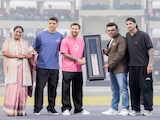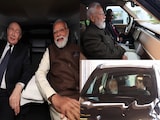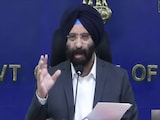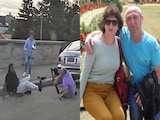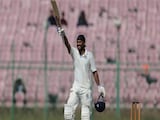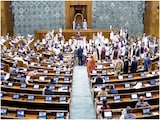A special court in Rajasthan today acquitted top Lashkar-e-Toiba bomb maker Abdul Karim Tunda in a 1993 blasts case. Two people were killed and many more injured in the blasts on multiple trains on the first anniversary of the 1992 Babri Masjid demolition.
The court, which cited lack of evidence against Tunda, convicted two accused - Aminuddin and Irfan - and sentenced them to life imprisonment.
Tunda, now in his 80s, is currently serving a life term after his conviction in a 1996 bomb blast case. He is an accused in several other bombing cases. Known to be close to terrorist Dawood Ibrahim, he is known as "Dr Bomb" for his bomb-making skills.
The octogenarian was brought to court in a wheelchair. Responding to questions from the media, he thanked god and his lawyers after his acquittal.
The blasts took place in trains passing through Kota, Kanpur, Secunderabad and Surat. Coming months after the Bombay blasts, the train bombings had shocked the country. All the cases from far-off cities were clubbed and heard by a special court under Terrorist and Disruptive Activities (Prevention) Act. Central agency CBI was in charge of the investigation.
The CBI, it is learnt, may approach the Supreme Court to challenge Tunda's acquittal.
Tunda, it is learnt, started out as a carpenter before turning to terrorism in his 40s. He first came under the scanner after the 1993 blasts in Mumbai. He lost his left hand in a blast during bomb-making. He has worked with multiple terrorist organisations, including Lashkar-e-Toiba, Indian Mujahideen, Jaish-e-Mohammed and Babbar Khalsa.
In 2013, he was arrested in Uttarakhand's Banbasa, located close to the India-Nepal border. Four years later, a Haryana court sentenced him to life imprisonment in a 1996 blast case.

